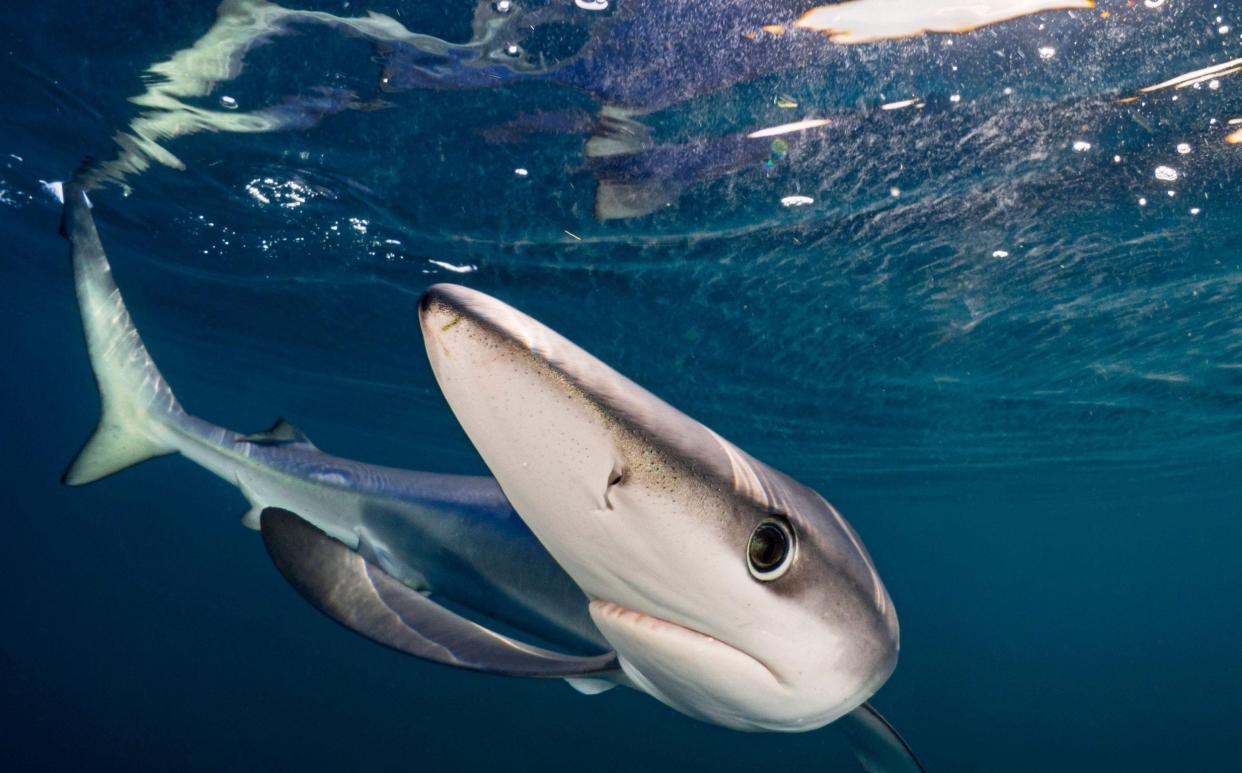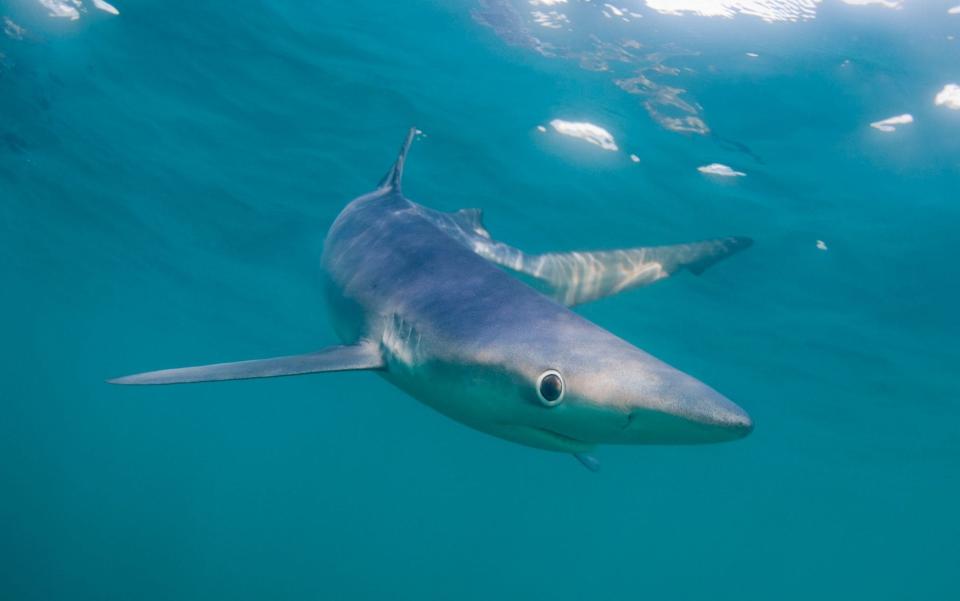Shark attacks swimmer off British coast for first time in 175 years

A snorkeler was rescued by coast guards after being bitten by a shark in Cornwall in what would be the most serious attack of its kind in British waters since 1847.
The woman's leg was bitten by the shark during a snorkelling trip run by a local tour firm, but despite her injuries she was able to walk off the boat to receive further treatment.
The trip had been organised by the Blue Shark Snorkel tour company to give people a close-up view of blue sharks, one of several species of shark known to migrate from the Atlantic to the west Cornwall coast during the summer months.
But at some point during the dive one of the predators - thought to have been a blue - is understood to have turned and bitten the woman.
A spokesman for the Maritime and Coastguard Agency said: “HM Coastguard sent Penzance Coastguard Rescue Team to meet a snorkeler who suffered a suspected shark bite.
“The coastguard was notified just before 12.30pm on Thursday July 28. It is believed the swimmer suffered a leg injury.
“The coastguard team met the casualty at Penzance harbour to assist with passing them into the care of the ambulance service.”
Details of the incident have only just emerged and the woman has not been named, with no information yet given about where she had travelled from, or whether the shark came into contact with any other divers in the party.
In a statement released through Blue Shark Snorkel, the woman said: “I just wanted to say that despite how the trip ended, it was amazing to see such majestic creatures in the wild and I don’t for a second want this freak event to tarnish the reputation of an already persecuted species.
“Wanted to thank everyone for their amazing actions. What was a very scary incident was made so much easier by the kindness and calmness of the people around me.
“Thank you to the trip team for getting me back to shore quickly and carefully and making me feel as safe as I possibly could.
“We all take these risks when we enter the habitat of a predator and we can never completely predict the reactions of a wild animal.”
‘Blue shark attacks extremely rare’
A spokesman for Blue Shark Snorkel said: “These occurrences are extremely rare and can be easily misunderstood so we want this to be dealt with as sensibly as possible.
“As we know, these things can happen when we choose to interact with wild animals in their own environment. The last thing we want is to let speculation drive the media into a world of bad press for the sharks, under no fault of their own.
“We immediately enacted our emergency response plan, with first aid being carried out on the person involved.
“Following advice and assessment from the coastguard, the person walked off the boat and received further treatment ashore. We’ve tried to understand why it happened and are in continued talks with shark experts.”
But one local fisherman claimed that the firm had used the technique of “chumming the waters” to attract the sharks - throwing fish and fish entrails into the sea.
He said: “The charter was 15 miles out to sea and chumming the water to get the sharks to come to the boat.
“It was definitely stupid jumping in with them after getting them in a feeding frenzy. From what I heard it was just a bite to the leg.”
No reason to be concerned
Shark attacks are extremely rare in the UK and, over the past few decades environmentalists have made efforts to change the public perception that sharks pose a threat to humans.
It is thought that out of the roughly 475 species of shark, only 12 are actually known to pose a threat to humans.

A spokesman for Visit Cornwall said there was no reason for tourists to be concerned, saying: “You don't have to worry as long as you swim on a lifeguarded beach. Sharks don’t eat people off Cornwall and we certainly don’t get Great Whites in our waters. There's no need to close the beaches at this stage.”
Blue Shark Snorkel describes its trips as “the chance to have close and interactive encounters with blue sharks in their natural environment”.
It says those taking part do not need a dive qualification “but must be very confident in open water and familiar with using a snorkel and mask”.
One previous customer said in an online review: “One hundred per cent recommend this trip, never had a wildlife encounter quite like it and would go back at the drop of a hat.
“At no point did we feel unsafe or like we were in danger, the sharks are playful, cheeky and get incredibly close which is exactly what we wanted.”
Kristian Parton, marine biologist and shark scientist at the University of Exeter, said: “Blue Shark Snorkel UK is a great tourism business, and is one of very few operators that work with sharks down here. An incident like this is very rare, but accidents can happen on occasion, despite all safety precautions being followed.”
Richard Peirce, a local shark guide, said: “The water would have been chummed first to attract the sharks. The blood in the water would have stimulated the sharks' senses and they would approach initially looking for dinner.
“These sort of trips have to be handled both sensitively for the shark and also safely for those who are taking part. Hopefully the appropriate safety guidelines have been followed on this occasion.”

 Yahoo News
Yahoo News 
